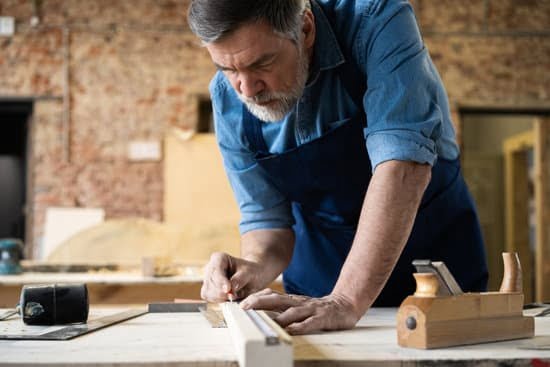Are you interested in becoming a woodwork teacher in Ireland? This article will guide you through the steps to kickstart your career in woodwork education. As a woodwork teacher, you will play a crucial role in imparting practical skills and knowledge to students, preparing them for careers in woodworking and related fields. Woodwork education holds significant importance in Ireland, providing students with transferable skills and fostering creativity and problem-solving abilities.
To become a woodwork teacher in Ireland, there are specific educational requirements that you must meet. This includes obtaining the necessary qualifications, certifications, and licensing to ensure that you are equipped with the knowledge and expertise to teach woodwork effectively. Additionally, gaining practical experience through hands-on training, apprenticeships, or internships is essential to enhance your skills and understanding of woodworking materials and techniques.
In order to succeed as a woodwork teacher in Ireland, it is important to familiarize yourself with the Irish education system, curriculum, teaching methods, and styles. Developing effective teaching skills such as communication, classroom management, and lesson planning will also be instrumental in delivering quality woodwork education to your students.
Lastly, networking with schools and education boards while staying updated with industry trends through continuing education and professional development opportunities will pave the way for a successful career as a woodwork teacher in Ireland.
Educational Requirements to Become a Woodwork Teacher in Ireland
To become a woodwork teacher in Ireland, there are specific educational requirements and qualifications that you must meet. Here is a breakdown of the steps you need to take to pursue a career as a woodwork teacher in Ireland:
- Qualifications needed: To become a woodwork teacher in Ireland, you must have a relevant undergraduate degree in education or woodworking. Specializing in woodwork education will give you a solid foundation for teaching this subject. Additionally, obtaining a postgraduate qualification in education or a related field will enhance your credentials as an educator.
- Certification and licensing: In order to teach woodwork in Ireland, it is essential to be registered with the Teaching Council of Ireland. This involves completing a professional master’s in education (PME) program, which provides the necessary teaching qualifications and leads to registration with the Teaching Council.
Gaining practical experience in woodwork:
Aspiring woodwork teachers can benefit greatly from hands-on training and experience in woodworking. This could involve participating in woodworking workshops, engaging in woodworking projects, or gaining experience through apprenticeships or internships within the woodworking industry.
In addition to formal training and education, practical experience allows potential woodwork teachers to develop their skills and expertise, understand different techniques used in woodworking, and gain insights into the latest industry trends and developments.
Understanding the Irish Education System:
As part of becoming a qualified woodwork teacher in Ireland, it is imperative to familiarize yourself with the country’s education system. Understanding the curriculum guidelines for woodwork at different levels of education will help ensure that you are equipped to deliver high-quality teaching that aligns with educational standards. Additionally, by learning about various teaching methods and styles commonly employed within the Irish education system, aspiring teachers can prepare themselves for effective instruction delivery.
Gaining Practical Experience in Woodwork
Becoming a woodwork teacher in Ireland requires not only the proper educational qualifications, but also practical experience in working with wood. This hands-on training and experience are essential in order to effectively teach students the skills and techniques necessary for woodworking.
One of the best ways to gain practical experience is through apprenticeships and internships with experienced woodworkers and carpenters. This allows aspiring woodwork teachers to learn directly from professionals in the field, honing their own skills and understanding the nuances of working with wood.
In addition to formal apprenticeships and internships, individuals seeking to become woodwork teachers can also benefit from seeking out their own woodworking projects outside of a classroom setting. Building furniture, crafting wooden items, and engaging in DIY woodworking projects are all valuable ways to develop practical experience. It’s important for prospective woodwork teachers to have a strong foundation of knowledge and skill in woodworking before they can effectively impart that knowledge onto their students.
Another important aspect of gaining practical experience as a woodwork teacher is staying updated with industry trends and technological advancements in woodworking. This may involve learning about new tools, techniques, or materials that are being used in the field. By keeping abreast of these developments, aspiring woodwork teachers can ensure that they are providing their students with the most relevant and useful information.
| Practical Experience | Relevance |
|---|---|
| Apprenticeships/internships | Direct learning from professionals |
| DIY woodworking projects | Independent skill development |
| Staying updated with industry trends | Ensuring relevance of teaching material |
Understanding the Irish Education System
Aspiring woodwork teachers in Ireland need to have a thorough understanding of the national curriculum for woodwork education. This includes knowledge of the specific learning objectives, topics, and skills that students are expected to cover at different levels of their education. Familiarizing oneself with the curriculum enables teachers to effectively plan their lessons and ensure that they are meeting the educational requirements set by the authorities.
To become a successful woodwork teacher in Ireland, it is essential to understand and adapt to various teaching methods and styles prevalent in the Irish education system. This may include familiarizing oneself with project-based learning, practical demonstrations, and collaborative group work. Understanding how to effectively engage students in hands-on learning experiences is crucial for imparting practical skills associated with woodworking.
Networking within the educational community in Ireland is vital for staying updated on best practices, resources, and professional development opportunities. Building connections with other woodwork teachers, attending workshops or conferences related to woodworking education can provide valuable insights and resources for enhancing teaching techniques.
Staying Updated With Industry Trends
Continuing education and professional development are critical for woodwork teachers in Ireland to stay abreast of industry trends and new developments. This may involve attending workshops, obtaining advanced certifications or participating in relevant training programs. By continuously updating their skills and knowledge, woodwork teachers can remain competitive in the field of education while also providing students with up-to-date information and skills.
Developing Teaching Skills and Techniques
To become a woodwork teacher in Ireland, it is essential to develop strong communication skills. This involves being able to clearly explain woodworking concepts and techniques to students, as well as effectively communicating with colleagues and parents. Active listening is also crucial for understanding the needs and concerns of students, and for creating a positive learning environment in the classroom.
Another important aspect of becoming a woodwork teacher in Ireland is mastering classroom management. This involves creating a safe and organized learning space, implementing appropriate behavior management strategies, and maintaining discipline when necessary. Additionally, effective classroom management helps to create an optimal environment for teaching woodworking skills and fostering creativity among students.
As a woodwork teacher, the ability to plan engaging and educational lessons is key to success. Lesson planning includes outlining specific learning objectives, selecting appropriate teaching materials and resources, designing hands-on activities, and assessing student progress. It also involves adapting lesson plans to accommodate different learning styles and abilities within the classroom.
By honing these essential teaching skills, aspiring woodwork teachers in Ireland can prepare themselves for a successful career in educating students about woodworking techniques and principles.
Networking and Finding Job Opportunities
If you’re interested in becoming a woodwork teacher in Ireland, it’s important to familiarize yourself with the process of finding job opportunities within the education sector. Here are some steps to help you network and secure a teaching position:
1. Connect with schools and education boards: Reach out to local schools and educational institutions to inquire about potential job openings for woodwork teachers. Building relationships with principals, department heads, and other educators can also provide valuable connections and insider knowledge about job opportunities.
2. Job search strategies: Utilize online job boards, social media platforms, and professional networking sites to search for available positions. In addition, consider attending career fairs, industry events, and educational conferences to network with potential employers and showcase your skills and qualifications.
3. Professional development: Engage in continuous professional development to enhance your expertise as a woodwork teacher. Attend workshops, seminars, and training programs related to education, teaching methods, and woodworking techniques to stay updated with industry trends and demonstrate your commitment to ongoing learning.
By following these networking strategies and actively seeking out job opportunities within the education sector, aspiring woodwork teachers can increase their chances of securing a fulfilling teaching position in Ireland.
Continuing Education and Professional Development
To become a woodwork teacher in Ireland, it is important to seek out professional organizations such as the Irish Woodturners’ Guild or the Association of Woodturners of Great Britain. These organizations offer resources, networking opportunities, and continuing education events specifically tailored to woodwork educators. Attending workshops and seminars focused on woodworking techniques, safety practices, and new tools and equipment can greatly enhance a teacher’s skills and knowledge.
Additionally, staying connected with other woodwork teachers and professionals within the industry can provide valuable support and mentorship. Collaborating with colleagues, attending educational conferences, and participating in online forums can all contribute to ongoing professional development for woodwork teachers in Ireland. By continuously seeking out new learning opportunities and staying connected within the industry, woodwork teachers can ensure they are providing the best possible education for their students while also advancing their own careers.
Succeeding as a Woodwork Teacher in Ireland
Becoming a woodwork teacher in Ireland can be a fulfilling and rewarding career choice for those who have a passion for woodworking and education. With the right qualifications, skills, and determination, you can make a positive impact on the lives of students while fostering a love for craftsmanship and creativity. In this article, we have explored the educational requirements, practical experience, teaching skills, networking opportunities, and professional development needed to succeed as a woodwork teacher in Ireland.
To become a woodwork teacher in Ireland, it is essential to obtain the necessary qualifications and certifications. A bachelor’s degree in education with a specialization in woodwork or a related field is typically required.
Additionally, obtaining the appropriate teaching license from the Teaching Council of Ireland is crucial for eligibility to teach in schools. These educational requirements lay the foundation for your career as a woodwork teacher and provide you with the knowledge and expertise needed to effectively educate and inspire students.
Gaining practical experience through hands-on training, apprenticeships, or internships is also vital for becoming a successful woodwork teacher. This practical experience not only enhances your woodworking skills but also provides valuable insight into teaching methods and styles that are effective in engaging students.
Familiarizing yourself with the Irish education system, curriculum, and teaching techniques will further prepare you for success in the classroom. Additionally, developing strong communication skills, effective classroom management strategies, and efficient lesson planning are essential elements for delivering high-quality woodwork education to your students.
In conclusion, succeeding as a woodwork teacher in Ireland requires dedication, continuous learning, and a genuine commitment to nurturing the next generation of craftsmen and women. By pursuing the necessary qualifications, gaining practical experience, refining your teaching skills, networking with educational institutions, and staying updated with industry trends through professional development opportunities will enable you to thrive in this fulfilling profession.
Whether you are inspiring future carpenters or encouraging artistic expression through woodworking projects, your role as a woodwork teacher can have a lasting impact on students’ lives and contribute to the rich tradition of craftsmanship in Ireland.
Frequently Asked Questions
How Do I Become a Metalwork Teacher in Ireland?
To become a metalwork teacher in Ireland, you will need to complete a recognized teacher education program. This may include obtaining a Bachelor of Education degree and specializing in metalwork teaching during this program.
It’s also important to gain practical experience in metalwork through internships or work placements. Additionally, you will need to be registered with the Teaching Council of Ireland.
What Qualifications Do I Need to Be an Art Teacher in Ireland?
In order to become an art teacher in Ireland, you will generally need a Bachelor of Education degree with a specialization in art education. It’s also important to have a portfolio demonstrating your artistic abilities and creativity. Additionally, being registered with the Teaching Council of Ireland is necessary for becoming an art teacher.
How Long Does It Take to Become a Teacher in Ireland?
The length of time it takes to become a teacher in Ireland can vary depending on the specific pathway chosen. Typically, completing a Bachelor of Education program takes about 4 years.
This may be followed by additional training or certification requirements for specific subjects such as art or metalwork teaching. Overall, it may take around 5-6 years to become a fully qualified and certified teacher in Ireland.

Hi everyone! I’m a woodworker and blogger, and this is my woodworking blog. In my blog, I share tips and tricks for woodworkers of all skill levels, as well as project ideas that you can try yourself.





